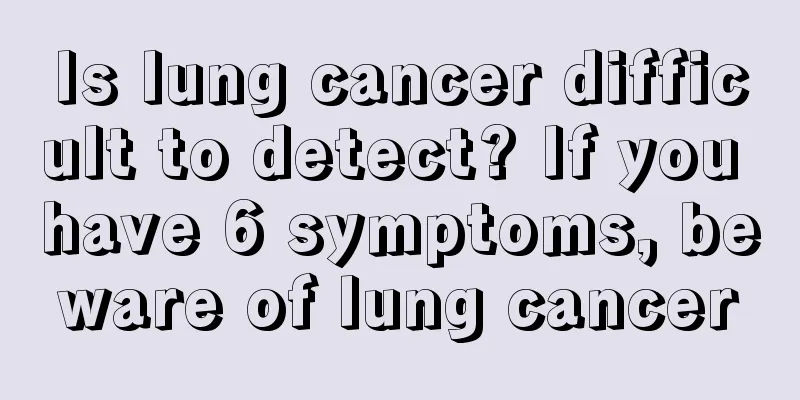What are the treatments for colon cancer

|
With the advancement of science, the treatment of colon cancer patients is also improving, so we all need to understand the treatment of patients so that we can correctly choose the treatment method that suits us. Next, we will introduce to you the treatment methods for colon cancer patients. (I) Surgical treatment? 1. Preoperative preparation In addition to routine preoperative preparation, colon surgery must be well prepared for the intestine, including ① cleaning the intestine: eat a diet with little or no residue two days before surgery; take laxatives 1 to 2 days before surgery. If there is constipation or incomplete intestinal obstruction, take the medicine a few days in advance as appropriate; cleansing enema, which can be performed one or several days before surgery depending on whether there is difficulty in defecation. ② Intestinal disinfection: kill pathogenic bacteria in the intestine, especially common anaerobic bacteria such as Bacteroides fragilis, and Gram-negative aerobic rods. The former mainly uses metronidazole (Flagyl), and the latter can use sulfonamides, neomycin, erythromycin, kanamycin, etc. Adequate intestinal preparation can reduce intraoperative contamination, reduce infection, and facilitate healing. At present, some hospitals at home and abroad have adopted the method of whole intestinal lavage for intestinal preparation. The method is to drip or take a special lavage solution (containing a certain concentration of electrolytes and intestinal disinfectants to maintain a certain osmotic pressure) through a stomach tube, with a dosage of 4 to 8 liters, and squat on a defecation device. It can achieve the purpose of intestinal cleaning and disinfection at the same time. 2. Surgical Method (1) Right hemicolectomy is suitable for cancers of the cecum, ascending colon, and hepatic flexure of the colon. The resection range is 15 to 20 cm of the terminal ileum, the cecum, ascending colon, and the right half of the transverse colon, together with the associated mesentery and lymph nodes. Cancers of the hepatic flexure also require resection of most of the transverse colon and lymph nodes of the right gastroepiploic artery. After resection, the ileum and colon are anastomosed end-to-end or end-to-side (closing the colon ends). Right hemicolectomy with preservation of the middle colic artery Right hemicolectomy with removal of the middle colic artery Right colon cancer resection (2) Left hemicolectomy (Figure 2-89) is suitable for cancers of the descending colon and splenic flexure of the colon. Resection range: left half of the transverse colon, descending colon, part or all of the sigmoid colon, together with its mesentery and lymph nodes. After resection, the colon is anastomosed end to end or the colon is anastomosed end to end with the rectum. Left colon cancer resection (3) Transverse colectomy is suitable for transverse colon cancer. Resection range: transverse colon and its hepatic flexure and splenic flexure. After resection, the ascending and descending colons are anastomosed end to end. If the anastomotic tension is too great, right hemicolectomy can be performed and the ileum and colon can be anastomosed. Transverse colon cancer resection (4) Radical resection of sigmoid colon cancer Depending on the specific location of the cancer, in addition to resection of the sigmoid colon, the descending colon or part of the rectum may be resected. Colocolectomy or colorectal anastomosis may be performed. Sigmoid Colon Cancer Resection (5) Surgical principles for patients with intestinal obstruction: If the intestinal contents are significantly reduced after preoperative intestinal preparation and the patient's condition permits, a primary resection and anastomosis can be performed, but protective measures must be taken during the operation to minimize contamination. If the intestine is full and the patient's condition is poor, a colostomy can be performed proximal to the tumor first, and a secondary radical resection can be performed after the patient's condition improves. (6) Principles of surgery when radical surgery is not possible When the tumor has extensive local infiltration or is fixed to surrounding tissues and organs and cannot be removed, if the intestinal tract is already obstructed or may soon be obstructed, a short-circuit surgery between the distal and proximal sides of the tumor can be used, or a colostomy can be performed. If there is metastasis to distant organs and the local tumor can still be removed, local palliative resection can be used to relieve symptoms such as obstruction, chronic blood loss, infection and poisoning. 2. Drug treatment 1. Chemotherapy for patients after surgery can generally be used for 2 to 3 courses within one to one and a half years. The commonly used drugs are mainly 5-fluorouracil (5-FU), which can also be combined with mitomycin, cyclophosphamide, etc. The total amount of 5-FU can be 7 to 10 grams per course. It can be administered orally or intravenously. It is best to add it to glucose solution and drip it, 250 mg each time, once a day or every other day. If the reaction is severe, such as nausea, loss of appetite, weakness, decreased white blood cell and platelet counts, etc., the dosage can be reduced each time, or the interval can be increased. If bone marrow suppression is obvious, the drug can be stopped in time. The gastrointestinal reaction of oral administration is greater than that of intravenous administration, but the bone marrow suppression reaction is mild. During medication, supportive treatment must be provided and drugs that reduce side effects must be used. Chemotherapy for patients whose cancer cannot be removed can alleviate symptoms and control tumor growth to a certain extent, but the effect is poor and short-lived. If the patient's general condition is poor, the side effects are significant and the condition may be aggravated, so it is not suitable for use. 2. Immunotherapy can improve the patient's anti-tumor ability. It has developed rapidly in recent years. Interferon, interleukin, transfer factor, tumor necrosis factor, etc. have been gradually and widely used. They can not only improve the patient's immune ability, but also cooperate with chemotherapy. 3. Chinese medicine treatment can improve symptoms, enhance the body's disease resistance, and reduce the side effects of radiotherapy and chemotherapy. Some Chinese medicines have direct anti-cancer effects, such as Hedyotis diffusa, Scutellaria barbata, Trichosanthes kirilowii, and Solanum nigrum. When taking medicine, both syndrome differentiation and disease differentiation can be considered, and medicines that can clear away heat and detoxify, promote blood circulation, nourish yin and blood, remove phlegm and disperse knots, and regulate the spleen and stomach can be added. After reading the treatment methods for colon cancer, do you have a certain understanding? If you find any abnormal symptoms, please go to the hospital in time to avoid delaying the disease. If you still have questions, please consult the online experts of Feihua Health Network, and we will give you detailed answers. Colon cancer http://www..com.cn/zhongliu/jca/ |
<<: What are the advantages and disadvantages of TCM in treating bladder cancer
>>: Things to note when undergoing chemotherapy for colon cancer
Recommend
Which hospital is best for treating lymphoma
Lymphoma, also known as "lymphoma", is ...
The dangers of pinching your nose and blowing air
In people's daily lives, perhaps many people ...
Methods to reduce the recurrence rate of early bile duct cancer
Do you know cancer? When it comes to cancer, many...
My stomach feels hard, what's wrong?
For many people, physical ailments first manifest...
What are the functions of a steam room?
Many people who pay more attention to health pres...
I feel sleepy as soon as I get to work, a self-help note for those who catch up on sleep at 9 o'clock in the morning
I rushed all the way to work in the morning, and ...
Let me tell you about the causes of colon cancer from a medical perspective
Medical research on colon cancer is quite in-dept...
Can poisonous snake meat be eaten?
I believe that everyone has often seen cases of d...
What is vestibular vertigo?
Vestibular vertigo is a common disease in the pas...
Pain in the right abdomen parallel to the navel
As we all know, the abdomen contains many organs....
Air conditioner energy efficiency rating
It has to be said that air conditioners have beco...
What are the reasons for male to female transition?
During pregnancy, women will pay special attentio...
At how many weeks of pregnancy can I use a fetal heart monitor
The fetal heart rate is relatively important for ...
What are the early symptoms of rectal cancer
Rectal cancer is a common tumor disease that occu...
How to prevent the recurrence of lung cancer
How to prevent the recurrence of lung cancer? Lun...









